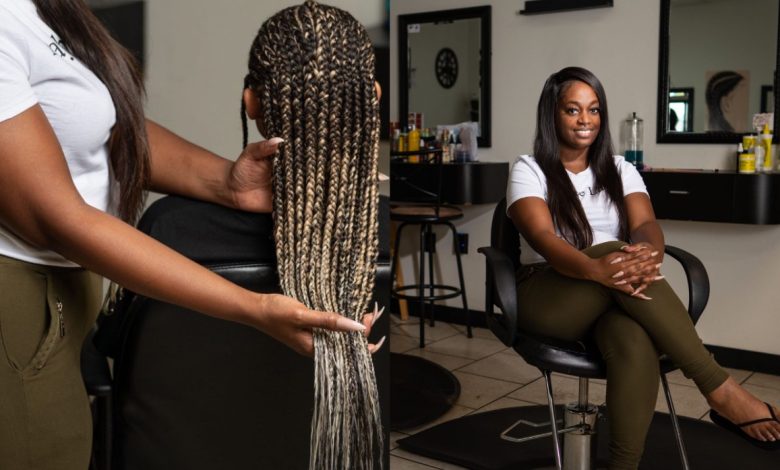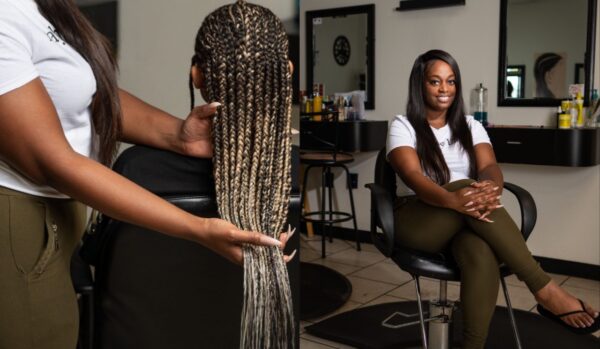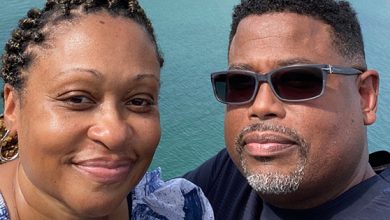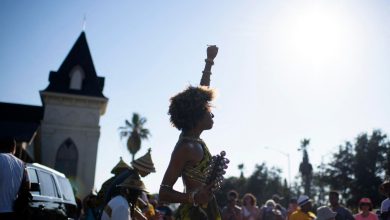Louisiana Braiders Had to Close Three Salons After State Demanded That They Train to Do Hair for 500 Hours – Something They’ve Already Been Doing for Years

A Baton Rouge judge has dismissed a lawsuit filed by a group of hair braiders who claim the state’s requirement to obtain an expensive and time-consuming license for natural hair braiding goes against their constitutional right to earn money and make a living to support their families.
The state’s licensing process demands completing 500 hours of training, passing an exam, and paying annual fees. The braiding license regulations are burdensome, their attorneys claim, because those who want to comply with the regulations have to also travel four hours away to the only available cosmetology school offering the course in New Orleans.

The hair stylists and their attorneys argued that braiding is a common practice that has been carried out safely for thousands of years, deeply rooted in African and African-American culture.
“So I’m supposed to go to these white-owned schools and pay you to teach me how to do something that I probably already know how to do and do well. It doesn’t make any sense to me,” said Michelle Robertson, who was one of the plaintiffs in the case. “It always comes down to money. Who owns the schools? No one that looks like us, and if they do, it’s not a majority.”
Many hair braiders have had to move to neighboring states where braiding doesn’t require a license, such as Mississippi, Texas and Arkansas. According to the Institute of Justice, a public interest law firm representing the braiders, 29 other states have no licensing requirements for braiding.
Yet in Baton Rouge, Ashley N’Dakpri and her aunt Lynn Schofield said the state law has impacted their business. They’ve had to shutter some of their salons because of the regulations.
N’Dakpri is the manager and the sole braider at her family’s hair-braiding salon, Afro Touch Braiding. She obtained a cosmetology license while residing in the Ivory Coast and has braided hair for over a decade at Afro Touch. N’Dakpri learned to braid by watching her aunt and other braiders at her aunt’s shop, according to The Advocate.
Schofield started the business in 2000 before it expanded to four locations. However, the state Board of Cosmetology started coming down on their business in 2018. If salons hire unlicensed braiders, they risk having their licenses revoked, and the state can impose fines of up to $5,000 for each instance of unlicensed braiders working in the salon. Schofield had to shut down three of her shops after facing thousands of dollars in fines.
In 2019, N’Dakpri and Schofield joined forces with IJ to file a lawsuit challenging the requirement to complete 500 hours of training to obtain an alternative hair braiding license.
The women also argue that they can’t afford to shut down their businesses for several hours while they take the required courses. It could take more than 10 months and cost more than $10,000 to earn an “alternative hair design” permit, according to a report by The Advocate.
“I don’t understand why I need to get a license to braid hair when I’ve been doing so for happy customers for years. I know what I’m doing,” said N’Dakpri in response to the July 15 ruling by a 19th Judicial District Court judge. “I’m frustrated and annoyed with this decision, but I’m determined to keep fighting to earn the right to keep doing the work I love doing.”
Sherri Morris, an attorney who represented the state licensing board, argued that the training is needed to protect consumers by ensuring that braiders “are knowledgeable about the damage which can result from poor scalp hygiene, improper grooming, excessive tension on the hair follicles and cross contamination.”
Institute for Justice attorneys argue that Louisiana’s braiding license requirement is unconstitutional because it violates the due process clause of the Louisiana Constitution, which ensures economic liberty or the right to pursue one’s chosen profession without unnecessary interference from the government. The firm also argues that the Legislature is the only authority in the state that can make laws and attorneys claim legislators have handed that power over to the licensing board.
IJ plans to appeal the case.
“This decision is a disappointment, but it is only a setback,” said IJ Attorney Keith Neely. “We will continue to fight back against these unconstitutional licensing restrictions, which trample the economic liberty rights of Louisianans.”




